Women of color are being erased from the #MeToo movement, and that is not OK
Over the weekend, thousands of protesters took to the streets of Washington, D.C., Manhattan, Los Angeles, Las Vegas, and other cities and towns across the United States for the second annual Women’s March.
The organization’s mission to “dismantle systems of oppression” that have failed women, girls, and gender-nonconforming individuals of all backgrounds, as well as the evolution of the #MeToo movement, has inspired countless individuals to join the crusade. But in the midst of the voiceless being given a voice, many believe that women of color have been noticeably silenced or erased from the conversation.
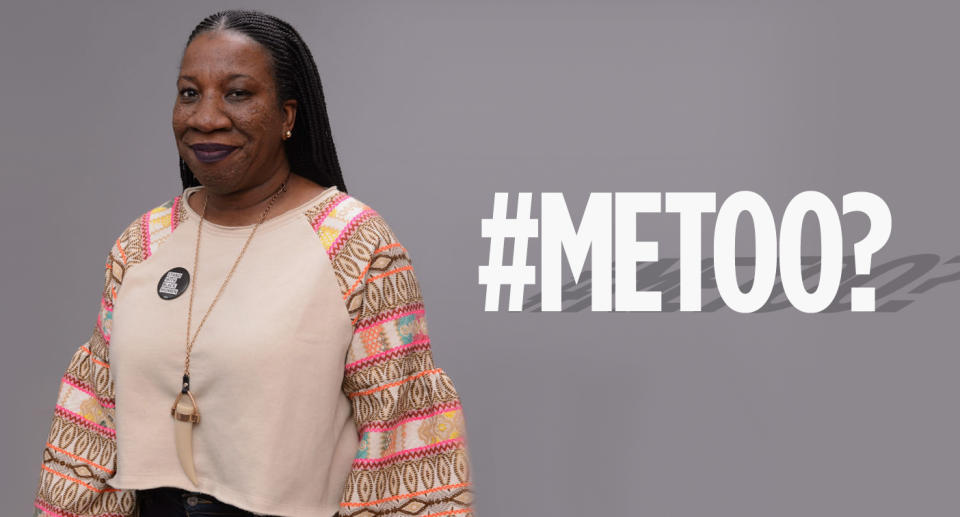
While white celebrities such as Alyssa Milano and Rose McGowan helped to propel the movement thanks to their massive social media followings, they eventually became the “faces” of a crusade that had been originated by a black woman. McGowan went so far as to raise her fist in a manner reminiscent of the black power fist (a symbol of black nationalism often used to represent unity and strength) while giving remarks last October at the Women’s Convention in Detroit. While the “raised fist” has been used in logos and by individuals in various movements, many took to Twitter to explain why McGowan’s gesture, and the subsequent use of the photo by the media, is problematic.
The news is showing #RoseMcGowan as the #MeToo leader throwing up her fist. Where were these women when #SandraBland was killed? pic.twitter.com/TMqaNHGIJc
— Super Blu (@super_blu) December 7, 2017
Upworthy writer Erin Canty delved even deeper into the issue with an article entitled, “Inconvenient truths about Rose McGowan and that raised fist at the Women’s Convention”. She wrote: “Women like Jemele Hill and Leslie Jones had their names driven through the mud and their character attacked and on Twitter no less. Where was their rallying cry? Where were the powerful white women, their fists high in the air, having their back?”
Tarana Burke, however, launched a campaign 10 years ago to unify victims of sexual violence with the popular catchphrase “Me Too.” Fast-forward to today, and A-list actresses have used the powerful phrase in hashtag form to call out Harvey Weinstein, Matt Lauer, Russell Simmons, and other high-profile men for sexual misconduct.
“It wasn’t built to be a viral campaign or a hashtag that is here today and forgotten tomorrow,” Burke told Ebony. “What’s happening now is powerful, and I salute it and the women who have disclosed, but the power of using ‘Me Too’ has always been in the fact that it can be a conversation starter or the whole conversation — but it was us talking to us.”
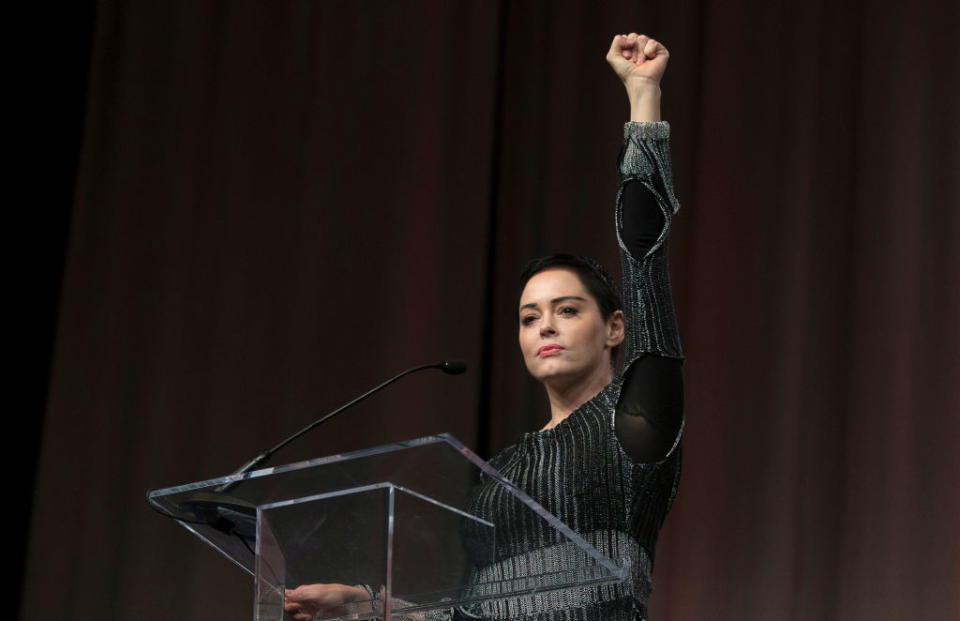
The fact that so many were unaware of Burke or that the #MeToo movement didn’t start in 2017 is why actress Anika Noni Rose says, “People need to listen to women of color.”
Rose tells Yahoo Lifestyle, “So often we’ve been screaming about something for so long, including the actual #MeToo movement, and yet no one actually hears it until it comes out of someone else’s mouth. Just listen. And when you hear it … give that person credit for what they’ve said. Give them their platform before you hand it to somebody else.”
When Time had the opportunity to correct this error with its “Silence Breakers”/Person of the Year cover, the publication instead chose to place Burke inside the issue. Meanwhile, Ashley Judd and Taylor Swift were prominently highlighted, along with Susan Fowler, Adama Iwu, and Isabel Pascual.
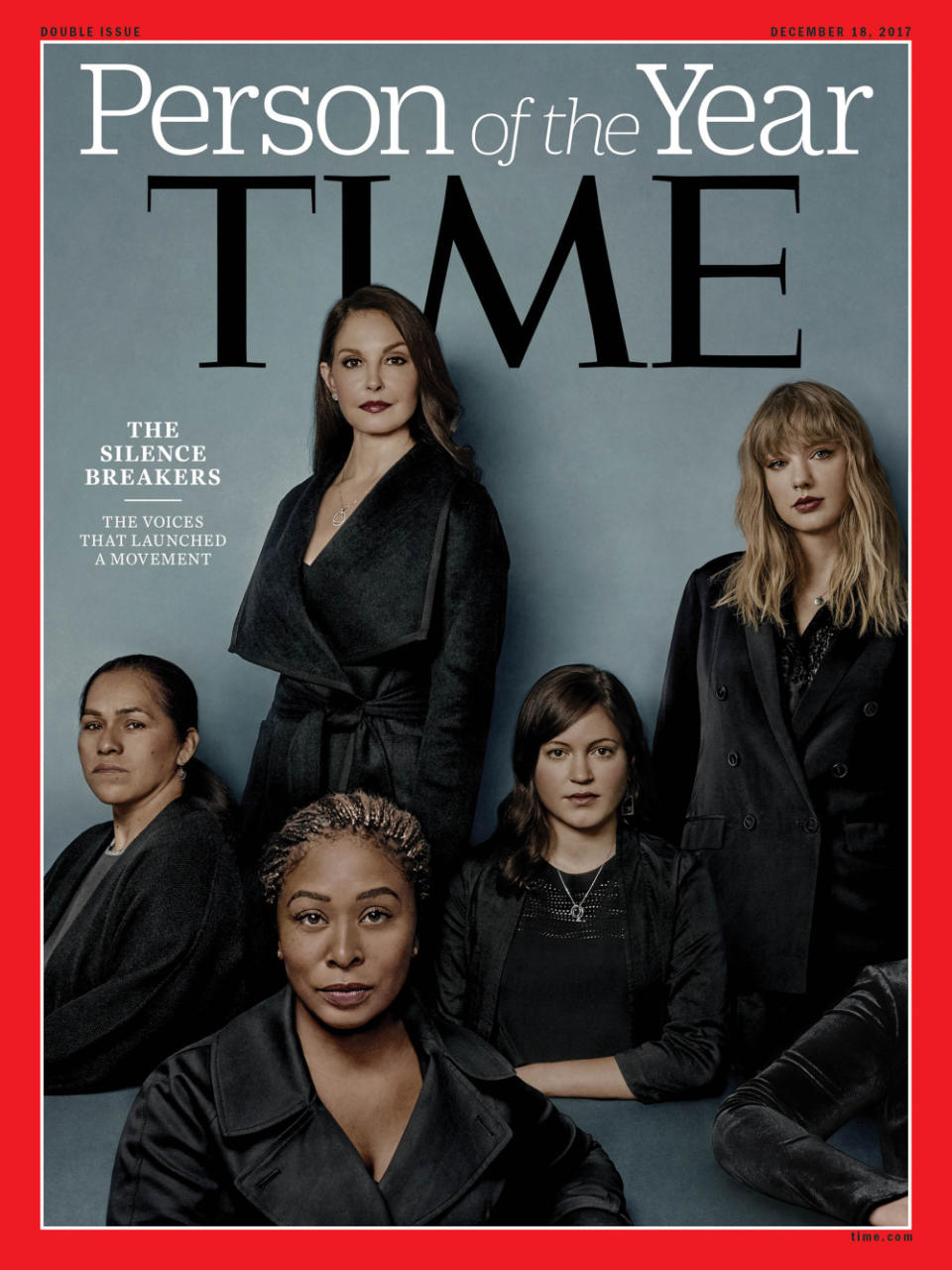
The 2018 Golden Globes red carpet provided the perfect platform for activists such as Burke, Monica Ramirez, and Marai Larasi to be not only seen but heard. However, the all-black sartorial protest often overshadowed the mission. The stark picture of these women of color standing next to white women on the red carpet as their guests, barely speaking or only being able to get in a few lines, revealed how the overall purpose had been totally defeated.
“White. Wealthy. And well known. These women have particular privileges they should use to their advantage to further important causes, not just get a gold star for wearing a ballgown of a certain shade,” Bri Kane wrote for Bust. “There are much more powerful ways celebrities could protest sexual assault in their industry. Like not going to the awards show altogether; sending an activist in their place; giving an acceptance speech about victims’ rights; releasing a statement supporting sexual assault survivors; or, even better, diving in to activism creating real, fundamental change within an industry we all want desperately to enjoy again.”
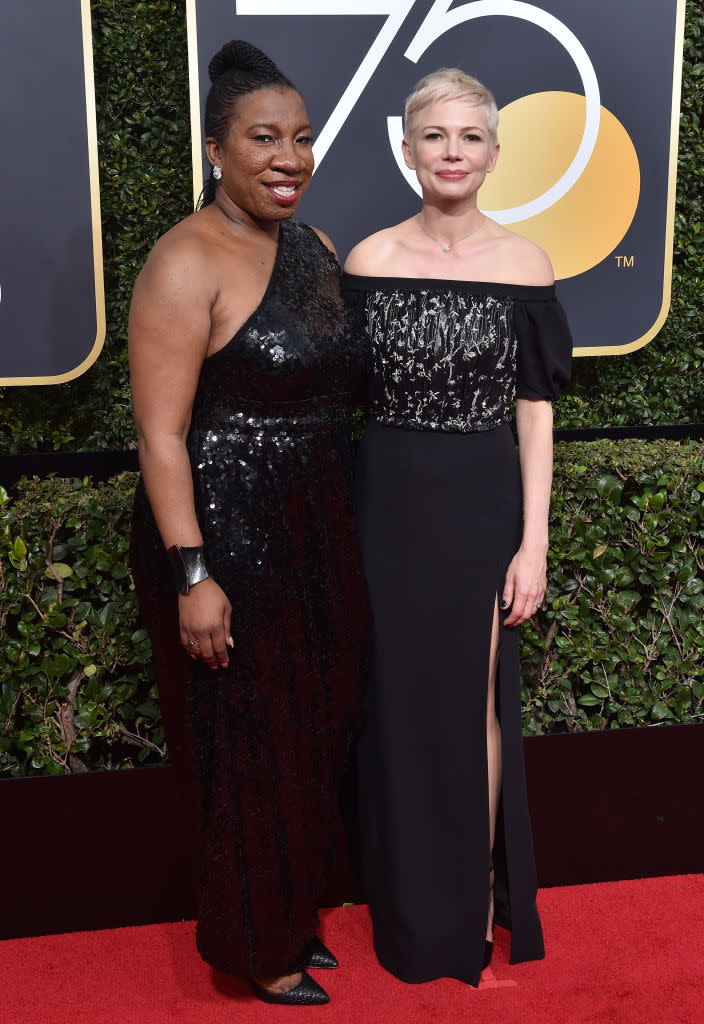
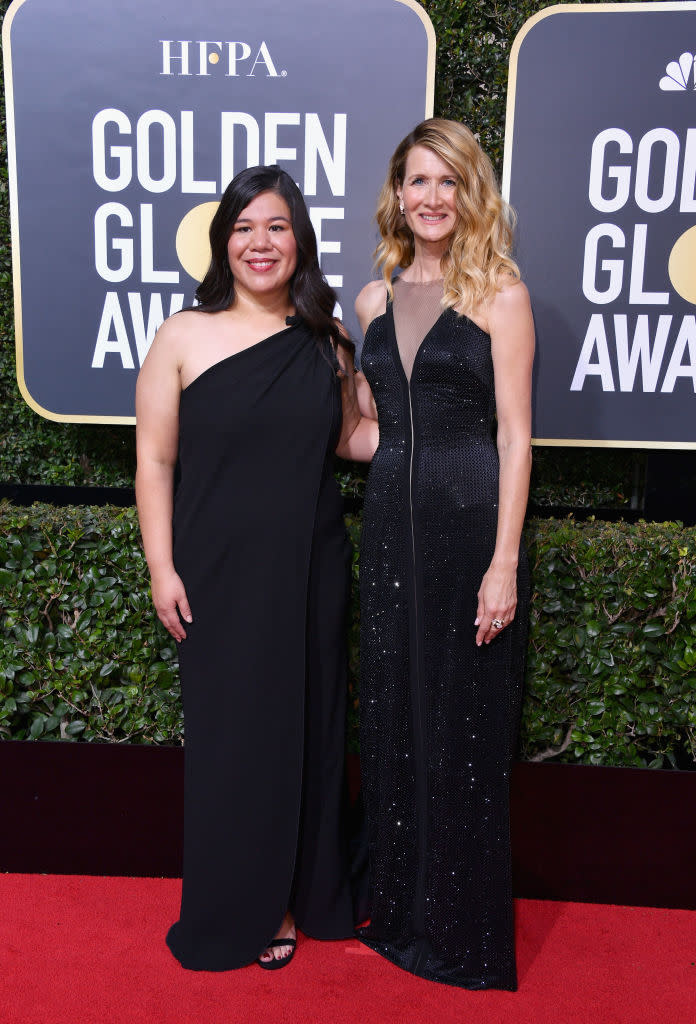
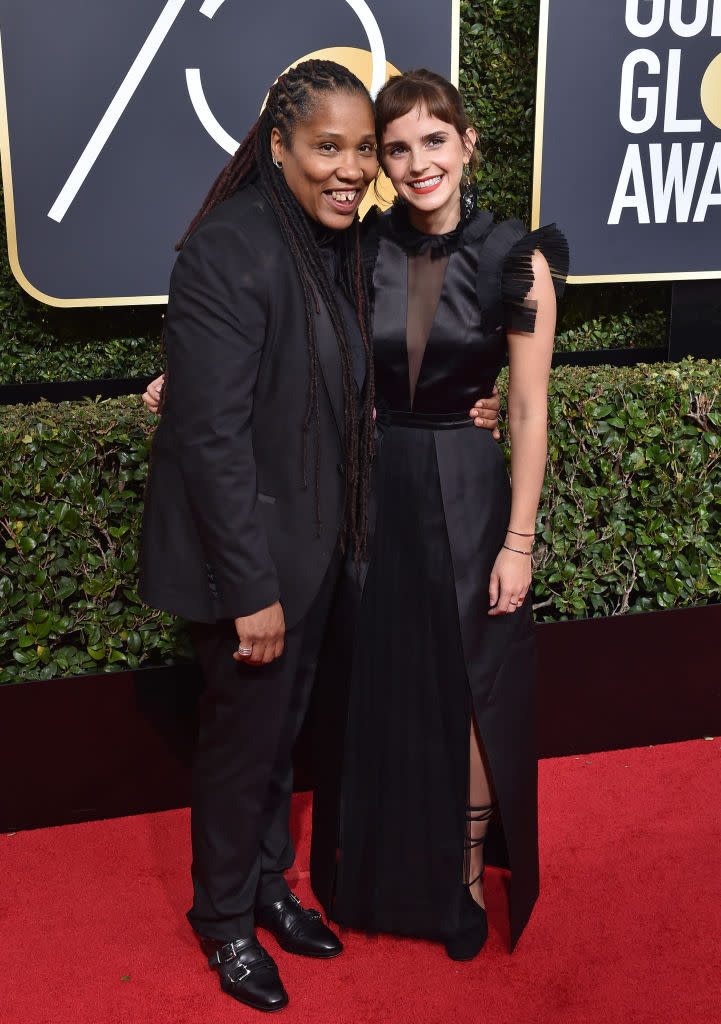
Perhaps Viola Davis’s peers can follow her example. The actress attended the Women’s March in Los Angeles on Saturday, and she delivered a formidable speech in support of women of color that enlightened attendees on legislation, such as Jim Crow laws, that has kept these individuals down.
“And the reason why these Jim Crow laws were in place, have stifled my rights and your rights, is because we fell asleep,” she said. “We fall asleep when we’re moving ahead and we don’t look to the left and right and see that we’re not including people … because really, at the end of the day, we only move forward when it doesn’t cost us anything. But I’m here today saying that no one and nothing can be great unless it costs you something.”
Davis also used her very public platform to shine a spotlight on women like Recy Taylor and Fannie Lou Hamer, who paid dearly to speak out about such injustices.
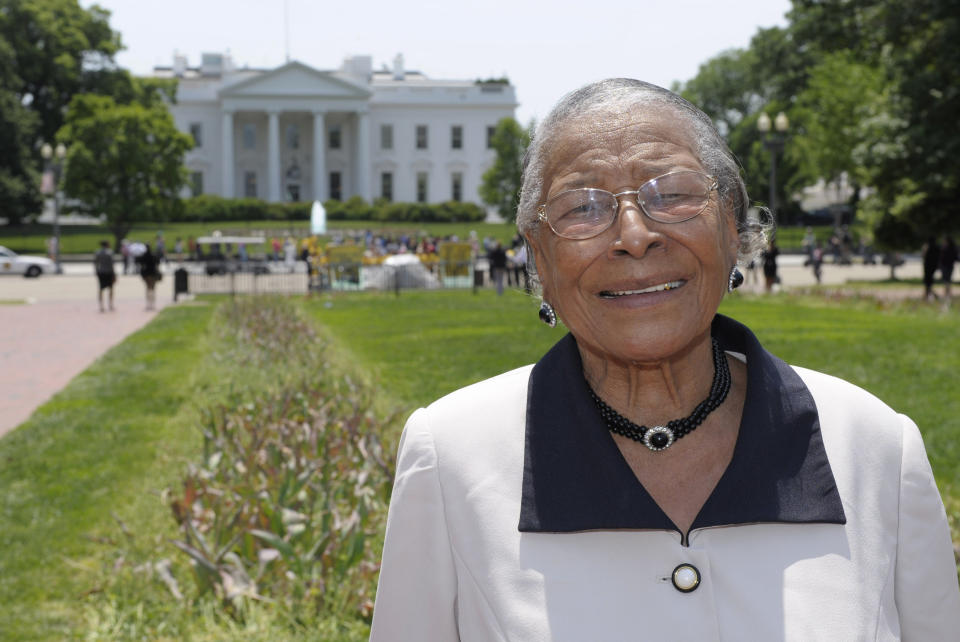
Women’s March co-president Bob Bland urged fellow white women to do more in her speech at the “Power to the Polls” rally in Las Vegas. “We need to bring our voice and our vote, not just for ourselves, not just for the issues that directly impact us and our families. But for the issues of all marginalized communities,” she said. “We must vote for the Dreamers. We must vote for indigenous women who are missing and murdered in alarming numbers. We must do it for trans women of color. For sex workers. For all of our black and brown communities.”
Women of all ethnicities, ages, and backgrounds working alongside one another is essential for the progression of any movement. And as Anika Noni Rose notes, “It doesn’t mean that somebody else can’t take the movement and move it forward and maybe even make it bigger due to their platform, but let’s not erase the other voices that are there.”
Read more from Yahoo Lifestyle:
Anika Noni Rose takes on sexual assault: ‘No one has the right to touch me’
Artist reverses gender roles in ’50s ads to ‘give men a taste of their own sexist poison’
‘We have a zero-tolerance policy now’: Hollywood’s women and men on why they’re wearing black
Follow us on Instagram, Facebook, and Twitter for nonstop inspiration delivered fresh to your feed, every day.

